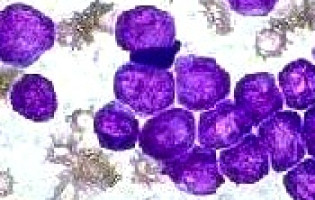
The new Referral Guideline for Suspected Cancer published today by NICE has been welcomed by leading charity Bowel Cancer UK.
The new guideline sees a lowering of the threshold at which patients can be referred urgently.
Called for by the charity in their report, “Diagnosing bowel cancer early: right test, right time’, this liberalisation of the guideline means that GPs can refer a patient at lower levels of risk than applied with the previous referral criteria. This would enable patients with persistent ‘low risk’ symptoms to be assessed more quickly.
In Bowel Cancer UK’s view, this is a huge improvement on the previous guideline which restricted referrals to those with ‘alarm’ symptoms even though only half of people diagnosed with bowel cancer present with the ‘high-risk’ symptoms that would have qualified for an urgent referral under the previous criteria.
Deborah Alsina, Chief Executive of Bowel Cancer UK, said, “We believe the Guideline is a step in the right direction to enable more timely referrals and more people diagnosed quickly with bowel cancer. This is key to our aspiration at Bowel Cancer UK of transforming survival rates from one in two people surviving for five years to three in four people surviving bowel cancer by 2025.”
Just over 14,000 people die from bowel cancer in England and Wales every year.
However bowel cancer is treatable if diagnosed early.
In fact nine out of ten people will survive bowel cancer if diagnosed in the earliest stages of the disease.
The timely referral of individuals who experience symptoms can lead to the early detection of polyps and tumours.
This is essential to saving more lives from bowel cancer.
Individuals diagnosed at the earliest stage of the disease are more responsive to treatment and therefore have more chance of surviving than those diagnosed later.
NICE’s Referral Guideline also includes the inclusion of younger patients for the first time, something which Bowel Cancer UK has been championing for several years through the charity’s Never Too Young campaign.
A recent survey conducted for the campaign among more than 400 bowel cancer patients under 50 captured their experiences and opinions.
It showed an alarming lack of awareness of bowel cancer as a condition that can affect younger people and delays in diagnosis resulting from a failure to act on symptoms.
Thirty-seven per cent of women and 15 per cent of men went to the GP five or more times before the GP referred them for testing for bowel cancer or were diagnosed as an emergency.
Overall, one in five took over a year to be diagnosed after first seeing their GP.
Deborah Alsina continued, “We are pleased to see that the needs of younger patients are being recognised in the new NICE Guideline, to ensure that bowel cancer can be ruled out first and not last for these patients.”
Source: Bowel Cancer UK